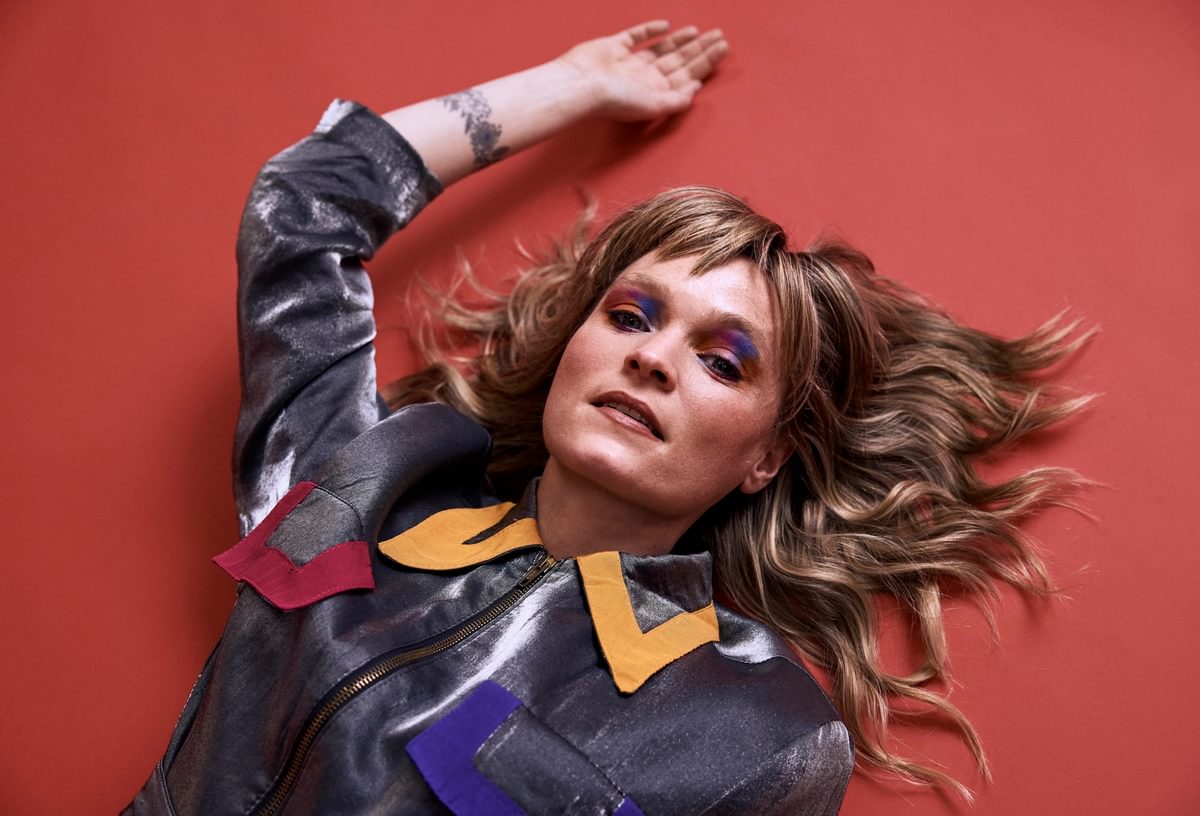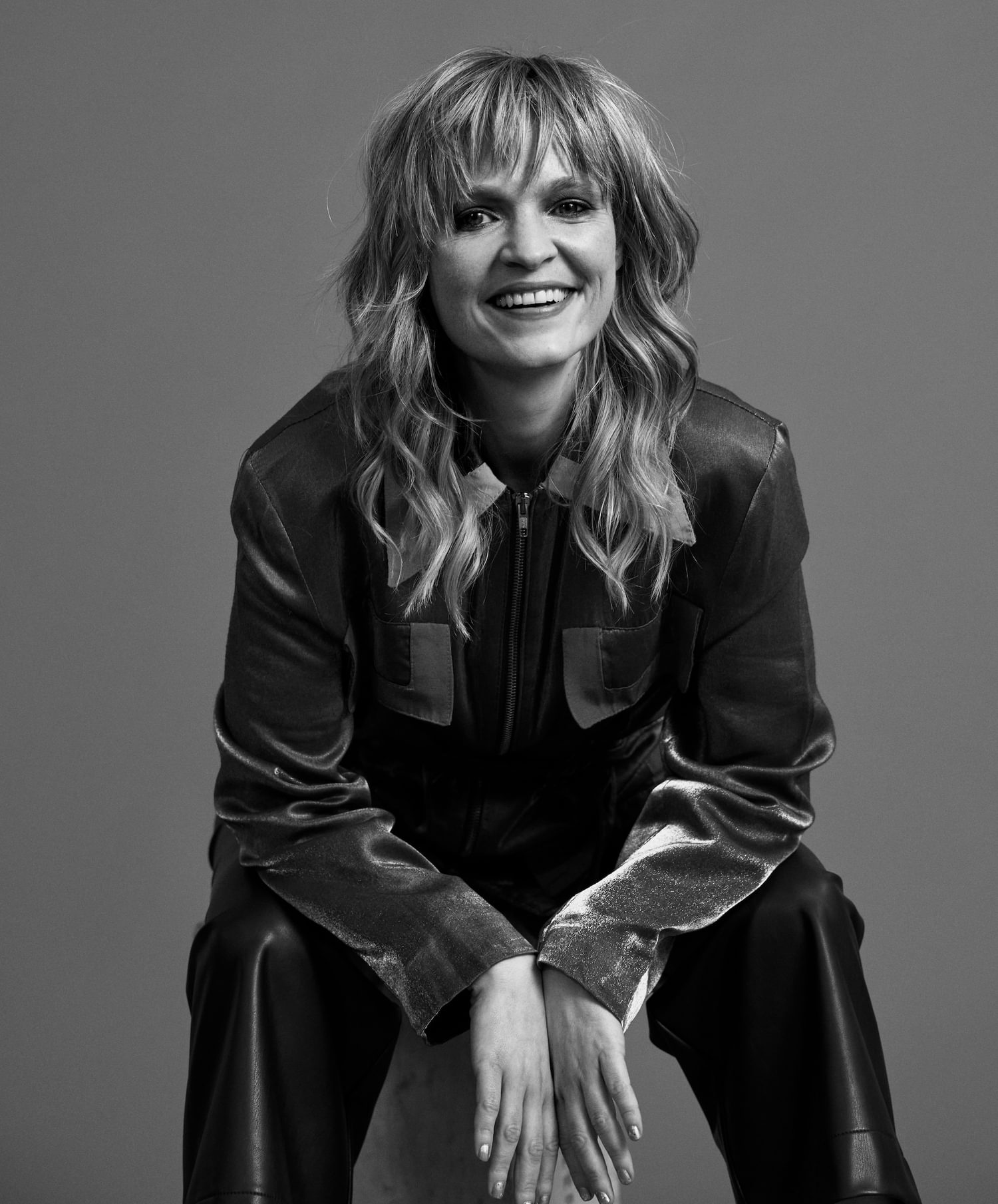
Billy Nomates and the raw power of letting go
Amid grief, Tor Maries learned how to open up her process by leaning into her gut instinct, she tells Max Mazonowicz.
Tor Maries consistently defies expectations, carving a unique path in the music landscape under her musical project Billy Nomates.
The epitome of a DIY artist, Maries has been the sole creator and performer of her music – until now. Her latest album, Metal Horse, is a powerful testament to her artistic vision and unwavering commitment to creative exploration.
Unlike the more meticulous six-month-plus process behind previous releases, like 2023’s excellent CACTI, Metal Horse was born during a concentrated recording session in Spain. “I've never done an album or a project where it was two weeks of waking up in the morning, doing the album, then going to bed at night. It's always been a six-month process where I'm in and out of it and piecing it together like a jigsaw. So it was actually really nice to have an absolute head-down process where you're living and breathing it,” she explains, describing the immersive experience that injected new energy and urgency into her songwriting. "There's a new energy to it… something in there that hopefully people feel like has moved on in the songwriting."
Yet, the creation of Metal Horse unfolded amid profound personal loss. The death of her father—an emotional cornerstone in her life and a shared source of musical inspiration—deeply shaped the album's direction. "I listen to so much music because of my dad, and that was our bond in the world," she says. She had also been caring for him through his illness, an emotionally taxing role reversal. “Anyone that has a parent that's going through terminal illness just knows how nothing in your world is normal; the roles are reversed, and it's very stressful," she reflects. Despite this grief, the album became a stabilising force. "The focus that I had on Metal Horse...I was very intent on it being a positive thing," she emphasises.

The recording process was further challenged by external events. On the day the band arrived to begin work, Maries’ bassist experienced a personal tragedy and had to leave. This disruption cast a shadow over the sessions. "It was hard to finish it because everybody was in this strange place...and it's hard to go all in when life has just turned the volume down," she explains. Despite this, Maries found strength in her creative instincts: "I feel like the only thing I will ever do is to just lean into that in a creative sense. And hopefully that is what I've done with Metal Horse."
The absence of a bassist necessitated significant improvisation. "Anyone that knows Billy Nomates stuff knows what bass is—it's as important as the vocal, maybe more," she says. Instead, they relied on demo basslines and began experimenting with unconventional textures. "We were bringing in strange drum machines...experimenting with things," she explains.
Not having the bass finalised pushed them to think differently: "We were constantly going, ‘Maybe it's missing something else,"' she reflects. This forced experimentation ended up expanding the album's sonic horizons. "Hopefully creatively it landed in the space it was supposed to land in." Initially conceived as a tightly structured narrative, the concept behind Metal Horse also evolved into something more abstract and atmospheric. "Originally, Metal Horse was a very solid story...I'd written a story for it," she reveals. But she soon realized that the rigid narrative stifled the songs. "I was making it this wooden thing...trying to tie it down wasn't giving the songs [room]."
She chose to let go of the literal structure: "There's something in storytelling that I've enjoyed, and maybe I'll explore it more down the line. But Metal Horse—it was looser. The songs needed to lead the way."
Continuing that spirit of faster decisions and looser structure was the inclusion of ‘Comedic Timing’: “[That] was a song that I wrote about six years ago and was going to be on Cacti originally but just didn't fit into the world of it and turned out to fit in the Metal Horse world very well.” Maries explains. She knew that “there was something in and and didn’t just want to throw it away” so revisited during the two weeks in Spain and decided to include on the album.
A notable shift in this project was her approach to collaboration. For the first time, she invited other musicians into the recording process. Relinquishing some creative control wasn’t always easy, she explains candidly: "[It was] excruciating at times. But I'm getting a lot better at it." She admits her process is unusual—she doesn't read music or understand traditional notation. "Everything is written in its own tuning...a nightmare for everyone to interpret. I understand now from working with musicians that I'm quite strange fish to work with."
Despite these challenges, she's learned a lot from her collaborators, including James (who she worked with on Cacti), and Mandy Clark and Liam Chapman, who play live with her. The collaborative experience, while difficult at times, ultimately proved enriching. "The writing process is such a selfless process for me...it's my connection to the world," she says. "But it's been really healthy for me. It's nice, it's been good to share stuff."
She highlights the joy of seeing others connect with her music: “They really grabbed a hold of it...and to go on to build the live shows with them, that's been really special.” This openness to collaboration also brought creative growth. "Oftentimes, I know how the song goes—how the drums go, how the snare should sound. But to let go of that and go, ‘You thought that?’—and it works... that's been great." She adds, "Turns out people have very good ideas about things!" While letting go was difficult, she believes it's made her a better songwriter. "Your idea isn't always the best one...someone might bring something better—and often do."

Each song on Metal Horse had its own trajectory. Some underwent radical transformation; others remained close to their original demos. "Some stuff is very, very different...you can go from a little drum line on a demo to something as big as ‘The Test,”' she explains. In contrast, other tracks stayed virtually untouched: “‘Nothing Worth Winning’—that's the demo drum machine and key synth. That hasn't really moved." She enjoys balancing both approaches. "There's something in trying to scale them as close to demos as you dare without compromising the sound."
Maries also cherishes imperfections. "There's a sweet spot...that dares to put in the wrong note, or something that's not on the grid," she says. One track defies metronomes entirely: "I’ve no idea what time signature ‘The Test’ is in, but no metronome has figured it out—it's a nightmare!" This embrace of creative unpredictability reflects her broader artistic ethos: each song should be allowed to evolve in its own way, whether it stays raw or becomes something more polished.
In Metal Horse, Billy Nomates channels grief, uncertainty, experimentation, and growth into an emotionally layered, sonically adventurous record. The album is a reflection of resilience—both personal and creative. It bridges two worlds: one of deep introspection and another of renewed openness to collaboration and reinvention – a bold statement from an artist who continues to evolve on her own terms.
Get the Best Fit take on the week in music direct to your inbox every Friday

Lorde
Virgin

OSKA
Refined Believer

Tropical F*ck Storm
Fairyland Codex





